 Petzlover
Petzlover Borador is originated from United States but Scotch Collie is originated from United Kingdom. Both Borador and Scotch Collie are having almost same height. Borador may weigh 6 kg / 13 pounds lesser than Scotch Collie. Both Borador and Scotch Collie has almost same life span. Both Borador and Scotch Collie has almost same litter size. Both Borador and Scotch Collie requires Moderate Maintenance.
Borador is originated from United States but Scotch Collie is originated from United Kingdom. Both Borador and Scotch Collie are having almost same height. Borador may weigh 6 kg / 13 pounds lesser than Scotch Collie. Both Borador and Scotch Collie has almost same life span. Both Borador and Scotch Collie has almost same litter size. Both Borador and Scotch Collie requires Moderate Maintenance.
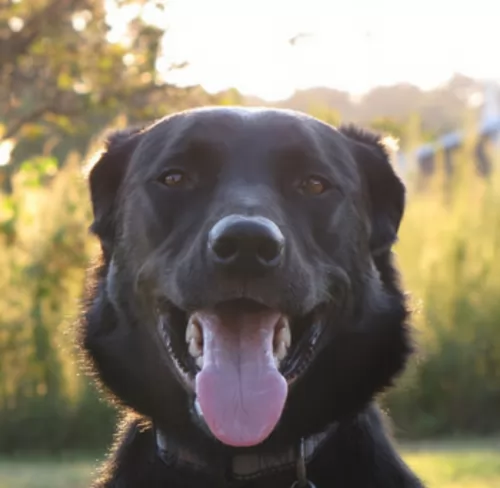 Hybrid breeds have become popular in the last decade or so. The Borador, hailing from Northern America, is one of these popular crossbreeds between two very popular dog breeds - the Border Collie and the Labrador Retriever. Between the two dog breeds, you get extraordinary intelligence, energy and a wonderful temperament.
Hybrid breeds have become popular in the last decade or so. The Borador, hailing from Northern America, is one of these popular crossbreeds between two very popular dog breeds - the Border Collie and the Labrador Retriever. Between the two dog breeds, you get extraordinary intelligence, energy and a wonderful temperament.
You first started hearing about this dog breed in the early 21st century. However each of the two breeds brought together to produce the Borador have got reasonable lengthy histories.
 The landrace breed, which started in the highlands of Scotland is known as the Scotch Collie. There were at the time two types of collies – the Rough or long haired collie and the smooth or short haired collie. The Scotch Collie is considered to be from a line of very ancient herding dogs. It might have existed in the days of the Roman Empire, these herding dogs might have included the Native Celtic Dogs, Roman Cattle Dogs, Gordon Setter, Viking Herding Spitzes and Irish Setters.
The landrace breed, which started in the highlands of Scotland is known as the Scotch Collie. There were at the time two types of collies – the Rough or long haired collie and the smooth or short haired collie. The Scotch Collie is considered to be from a line of very ancient herding dogs. It might have existed in the days of the Roman Empire, these herding dogs might have included the Native Celtic Dogs, Roman Cattle Dogs, Gordon Setter, Viking Herding Spitzes and Irish Setters.
In its native land the Scotch Collie is often called the colley dogs, coaly and cooley. Collie comes from the Scottish words for black coal – or the Coaley Sheep they herded. In addition to herding, the Scotch Collie also acted as a hunter and guard dog for its family. A large group of these collies were exported to America to work on family farms. Soon they were so popular they became family pets. They were first shown in both England and America in in the mid to late 1800’s.
The Scotch Collie Club was formed in 1885 and the breed accepted into the AKC the same year. The Collie Club of America started the following year. The AKC eventually dropped the moniker Scotch in favor or Rough and Smooth Collie. This move also separated the show dogs from the still working/herding Scotch Collies.
Aa time went on and the collie became more prominent in conformation competitions, some breeders mixed in the Greyhound and perhaps the Borzoi to get the collie we see today. The Scotch Collie itself eventually lost its independent recognition in the UKC and the NKC. It was mixed in with the English Shepard, but it was an important element in the development of the Australian Shepard, Shetland Sheepdogs and Border Collies.
The breed had a revival of sorts in the early 2000’s as the Old Time Scotch Collie. Any type of farm collie in America and Canada can be registered in the OTSCA. They are more often referred to as Old Time Farm Shepherds to avoid confusion them with the very popular collies. In 2017 there were 174 of these OTSCA dogs. Collies today have less working instincts, and the heeling instinct seems to be gone.
Today the show version of the Scotch Collie is recognized by both the AKC and UKC in the herding group.
It has been said of the Scotch Collie that they have “the majesty of a lion, the pride of a great thoroughbred stallion, the confidence of a Winston Churchill.”
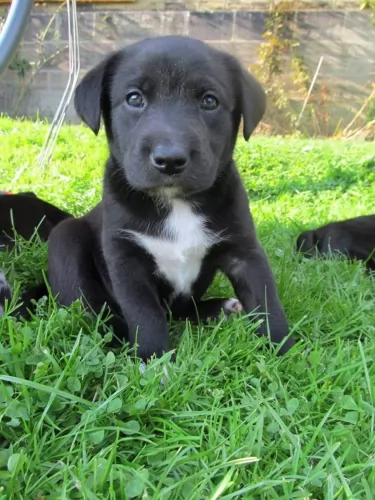 The Borador is a medium to large sized working dog which is well well-proportioned and muscular. His size can’t be carved in stone, but generally he will be in size from 40 – 57cm and weight in the region of 18 and 26 kg. His coat can vary significantly, leaning more towards one particular breed than the other. So the coat can be short and smooth or long and wavy or straight.
The Borador is a medium to large sized working dog which is well well-proportioned and muscular. His size can’t be carved in stone, but generally he will be in size from 40 – 57cm and weight in the region of 18 and 26 kg. His coat can vary significantly, leaning more towards one particular breed than the other. So the coat can be short and smooth or long and wavy or straight.
The Borador essentially has medium-sized ears which are floppy and the tail is medium-length. Sometimes the Borador will have the black and white coat of the Border Collie or he could have a brownish/beige colour from a golden Labrador.
When your energetic Borador is trained and socialized, he becomes a great family member and he gets on well with children and other pets.You’ll find that he often has the sweet, amicable temperament of the Labrador while having the sharp, alert intellect of the Border Collie.
Most Boradors are also good watchdogs and will bark at strangers, but because they are so amicable, from barking, they can quickly become a stranger’s friend.
 This Scotch Collie is an athletic, intelligent, well-balanced and alert dog. This collie has no exaggerated features like the long nose/muzzle of the current collies. This Scotch Collie is sound in mind and body, a hard working dog. He is hearty and versatile. They are longer than they are tall. Their heads are moderate and the stoop is well defined. They have a wide, flat skull. Their lips are tight and they are fitted well.
This Scotch Collie is an athletic, intelligent, well-balanced and alert dog. This collie has no exaggerated features like the long nose/muzzle of the current collies. This Scotch Collie is sound in mind and body, a hard working dog. He is hearty and versatile. They are longer than they are tall. Their heads are moderate and the stoop is well defined. They have a wide, flat skull. Their lips are tight and they are fitted well.
Their ears are also moderate in size and pointed or partially erect. They should not have long or droopy ears. They have eyes that might be oblique, almond, and round. The eyes are usually brown and merles may have blue eyes. The breed has a deep chest, broad shoulders and a long tail. There are also some bobtails that occur naturally.
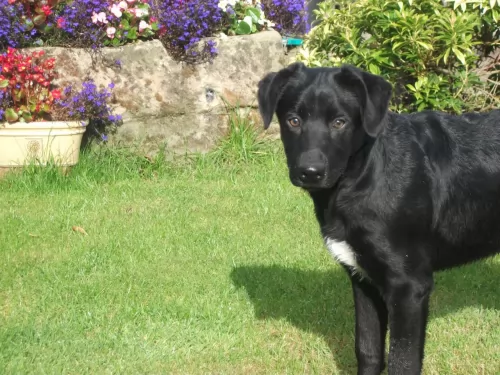 The Borador is an intelligent dog that can be trained. He is a sociable dog and is friendly to all members of his human family, willing to extend a paw of friendship to strangers as well.
The Borador is an intelligent dog that can be trained. He is a sociable dog and is friendly to all members of his human family, willing to extend a paw of friendship to strangers as well.
The Borador is also a friend of children and other pets. This combination of breeds is very energetic and you can’t just leave him for days on end in the backyard. He will need exercise and walks as well as ball games. When you become involved in his games, you tighten the bond between you and this is what this social, outgoing dog loves.
The Borador is going to make a wonderful pet because he is a mix of two very popular dog breeds. Give him all he deserves as a member of your family and you’ll have the perfect friend and companion for life.
 3.Adaptability - Scotch Collies are versatile and adaptable. There is no need to crate them as they are not destructive. If you have a large run or kennel, they can live anywhere. However they are happiest on farms and open lands.
3.Adaptability - Scotch Collies are versatile and adaptable. There is no need to crate them as they are not destructive. If you have a large run or kennel, they can live anywhere. However they are happiest on farms and open lands.
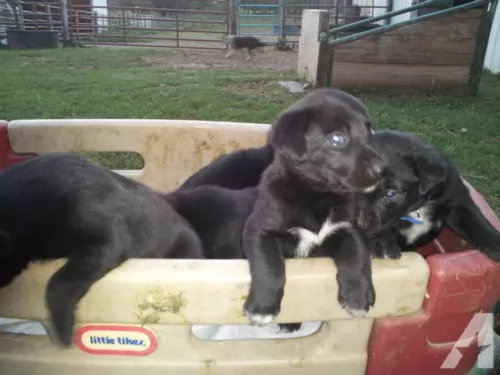 You won’t find serious health problems with your Boradors, as he is a robust breed. Nonetheless, there are some ailments that as a dog owner, you need to be aware of for your Borador.
You won’t find serious health problems with your Boradors, as he is a robust breed. Nonetheless, there are some ailments that as a dog owner, you need to be aware of for your Borador.
Skin ailments – you don’t want to see your dog scratching or licking continuously so you want to be aware of things like parasites and allergies. Skin diseases can be debilitating for a dog and can even require lifelong treatments. Yes, corticosteroids can help with itchy rashes, but the best move is to try and avoid skin ailments by ensuring a nutritious diet rich in minerals and vitamins and which includes some raw meat.
Always be checking your pet for skin problems such as ringworm, caused by a fungus and found on your dog and which appear as scaly patches and hair loss.
Hip Dysplasia – an inherited problem with the hip joints. No-one can predict when hip dysplasia settles in, but it can be as early as 4 months of age.Your dog shows signs of stiffness and may not be his energetic self. Some dog owners want to see certificates first that the parents of puppies have been hip-cleared before they buy a puppy.
 The old line breed was hearty with few health issues. The ones they did have included:
The old line breed was hearty with few health issues. The ones they did have included:
• Skin problems - can have skin diseases like mange that may or may not be acute, may have allergies or sensitivities.
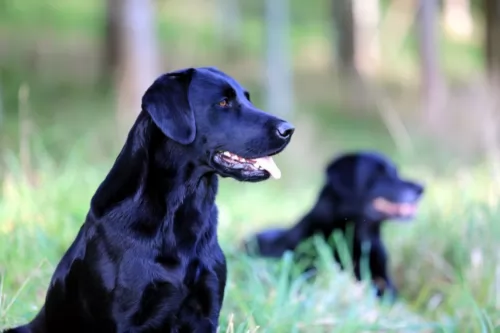 The Borador may have inherited the moderate shedder characteristics of the Border Collie or the more intense shedding of the Labrador Retriever. He will require a good brush at least twice a week to ensure you remove loose hairs so as to keep his coat shiny and healthy. Check your dogs ears too for yeast infections.
The Borador may have inherited the moderate shedder characteristics of the Border Collie or the more intense shedding of the Labrador Retriever. He will require a good brush at least twice a week to ensure you remove loose hairs so as to keep his coat shiny and healthy. Check your dogs ears too for yeast infections.
Puppies and young Boradors are full of energy and they will require a diet that has an excellent protein content. If you’re unsure about how to feed your Borador, speak to your vet as some dogs need more calories depending on their level of activity.
Certainly if your dog has allergies, you may have to look for a special diet but otherwise a top brand commercial dog food can be a good choice if you include some home prepared food such as rice, vegetables and meat. It is important to give your dog some raw meat every now and then as well. Always have a bowl of cool, fresh water available for your pet 24/7.
 1Feeding the puppy - The Scotch Collie is not a medium dog nor is it a large dog. It is somewhere in-between. Because of this there is some discretion in not only how much you feed your puppy, but also what you feed. Normally we would feed according to breed size but here you need a high quality formula that is made for working breeds. The puppy will need enough calories to meet their high energy needs. Feed at least 3-4 times a day.
1Feeding the puppy - The Scotch Collie is not a medium dog nor is it a large dog. It is somewhere in-between. Because of this there is some discretion in not only how much you feed your puppy, but also what you feed. Normally we would feed according to breed size but here you need a high quality formula that is made for working breeds. The puppy will need enough calories to meet their high energy needs. Feed at least 3-4 times a day.
2.Feeding the adult - you need a high quality formula that is made for working breeds. The adult will need enough calories to meet their high energy needs. Feed at least 2 times a day.
There is a high need for exercise starting with walks or jog but that is not going to be enough. The Scotch Collie is not a Border Collie or a Corgi in terms of energy, but they are not couch potaoes. They need more than access to a yard. They need a job or they need defined exercise and play. The daily walk or jog will do it but intense play is better.